Flossing is an excellent oral hygiene routine that helps clean your teeth and extricate any food particles stuck in between them. Bleeding when you floss can be a scary occurrence. While it’s common for some people to bleed, it’s not normal.
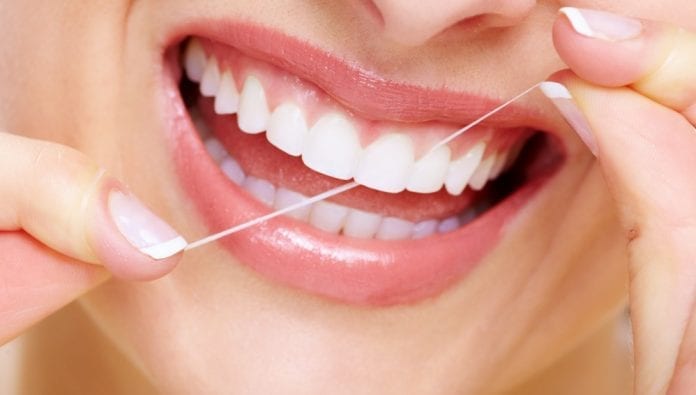
Seeing blood coming from anywhere in our bodies without a proper explanation is generally quite unnerving. You can check parramattadentalavenue.com.au for more information on this if you do not find necessary information further in the article. Your gums bleeding when you floss is suggestive of a deeper underlying issue.
So, what would make the gums bleed when you floss?
Causes of bleeding gums during flossing?
Various factors may be causing your gums to bleed when you floss. It is a symptom, not a disease by itself. To properly treat your bleeding gums, you need to understand what is causing it.
Gingivitis
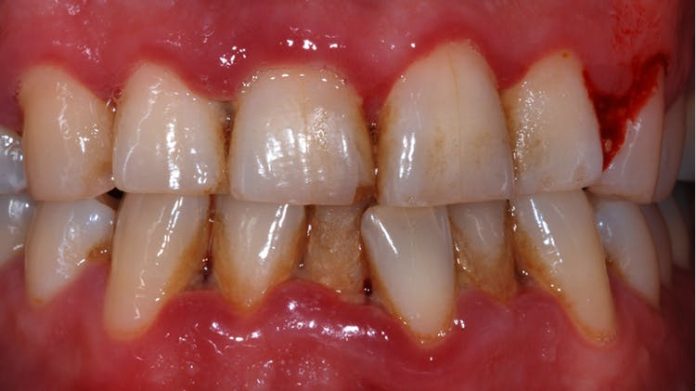
Various types of gum diseases spread to the bone present under the teeth. It further causes the tooth bones to rub against each other, thereby leading to the bleeding of the gums. The gum diseases spread in two stages. The first stage is called gingivitis, and the second step is called periodontitis.
Gingivitis is a gum disease characterized by inflamed and swollen gums that are tender and painful to touch. Bad breath is one of the major symptoms of this disease. Also, one may notice significant redness and bleeding of the gums.
Gingivitis occurs as a result of poor oral hygiene. When the plaque that lines the teeth is not removed correctly during brushing and flossing, it becomes a breeding ground for harmful bacteria resulting in gum infections. Non-regular brushing of teeth, lack of cleanliness in the mouth are some of the many causes of this disease. Also, a lack of vitamin C and calcium are the major causes of this disease.
If the plaque stays for an extended period, it develops into tartar that will add to the teeth’ inflammation.
Periodontitis
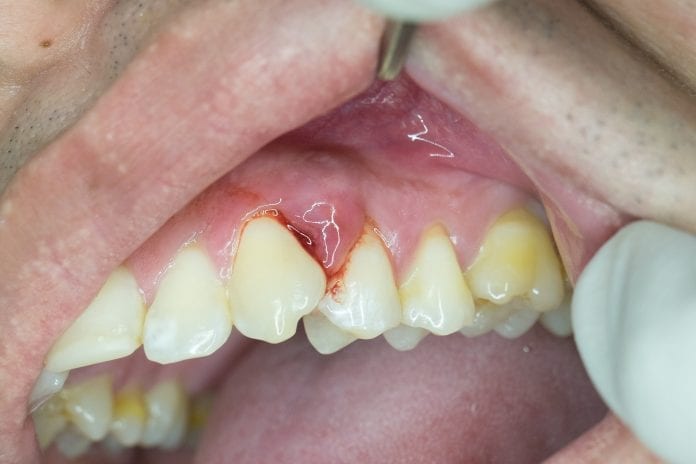
Periodontitis is a severe infection that damages gums and can potentially make the teeth fall out. Periodontitis is an incurable and wasting oral disease that is so severe that it can destroy the jaw bone. If gingivitis goes untreated for a long time, it may lead to periodontitis.
An infected tooth also spreads the infection to its surrounding environment and infects other teeth as well. Other common symptoms of this condition are that your bad breath will not go away easily, and your gums will become red and swollen. Also, while brushing, your gums will bleed, and the teeth will begin to loosen. You may also face sensitivity problems in your infected tooth.
If you have bleeding gums, loose teeth, and sensitive teeth, you should immediately contact your doctor. If you notice that your gums are swollen and bleed when you brush or floss, you can be affected by periodontitis.
Harsh brushing
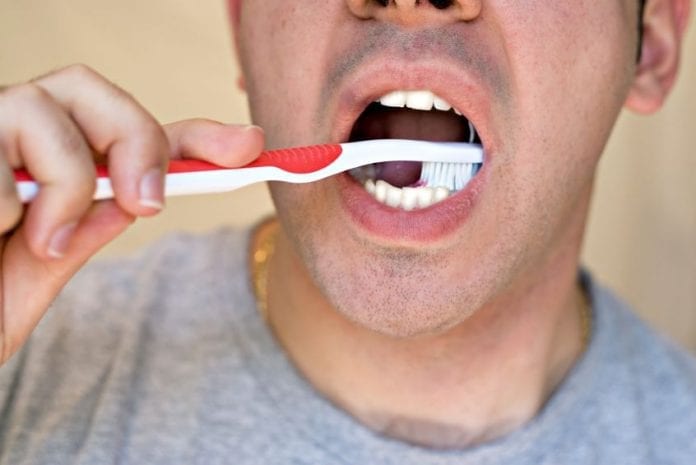
If you’re brushing your teeth too roughly, you may be causing damage to the gums. A new toothbrush or one with very coarse bristles will also damage them and cause bleeding. Once they are bruised, any slight provocation such as flossing will cause bleeding.
Vitamin deficiencies
The deficiency of vitamin C and K is a major cause of this condition. If you’re taking good care of your mouth and teeth and your gums are still bleeding when you floss, you may want your vitamin levels checked.
Ill-fitting dentures
Using partial dentures that are too tight is likely to hurt your gums and bleed them when you floss. Use the dentures which fit perfectly and you must feel comfortable wearing them.
How to prevent gums from bleeding when flossing
Use a mouthwash

A good antibacterial mouthwash treats gingivitis by killing the harmful bacteria in the gums and teeth. It reduces inflammation and provides relief by soothing swollen gums.
You can also rinse your mouth with salt water, thrice a day. Salt has anti-bacterial properties which will kill the bacteria and the germs.
Use a soft toothbrush
A harsh toothbrush worsens the condition. Use a brush with soft bristles and use soft strokes to brush.
Improve your diet

Lack of vitamin C, liver disease, cancer, vitamin K deficiency, hormonal changes in women, teeth curvature, care of mouth cleanliness, gums injury, and bleeding disorders can cause bleeding from gums.
Adopting a diet rich in vitamins C and K will cure the problem which is generally caused by vitamin deficiency. Try to incorporate more vitamin C rich foods in your diet. They prevent the infection from growing. To strengthen your teeth and make them healthy, eat raw vegetables and citrus fruits.
Use clove oil to treat your bleeding gum. It has antiseptic properties that can solve all kinds of dental problems. It also has anti-inflammatory and anti-plaque properties which come handy in treating your condition.
Floss daily
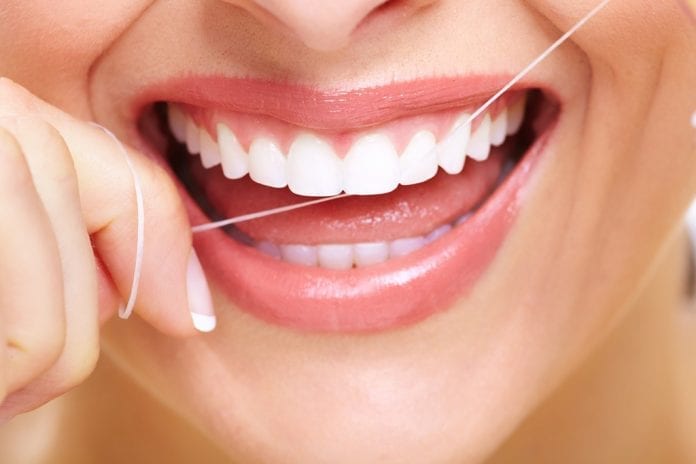
Bleeding while flossing might make you think that you probably need to floss less. However, that’s not the case. Your gums and the space between your teeth need to get used to frequent flossing to build resilience.
The plaque on the teeth gaps and base has to be removed for the bleeding to stop. If you stop flossing, the plaque builds up, leading to more infections and more bleeding. Brush your teeth after flossing to flush out the food particles.
People must floss at least once a day to remove food particles and plaque from their teeth, where the toothbrush cannot reach. Plaques, a viscous layer of food containing bacteria, cause dental diseases and gingivitis, which can later turn into periodontal disease.
Conclusion
Flossing is good oral hygiene; brushing alone does not entirely get rid of plaque from your teeth. Do not stop because of bleeding gums.
These at-home remedies are sufficient to stop your gums from bleeding when flossing. We hope that this article helps you to stop bleeding of your gums. If you have done all the above and there is no change, it may be time to consult your dentist.









